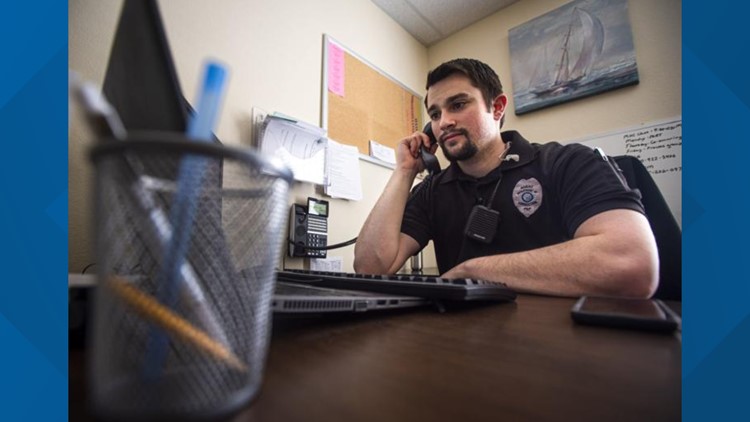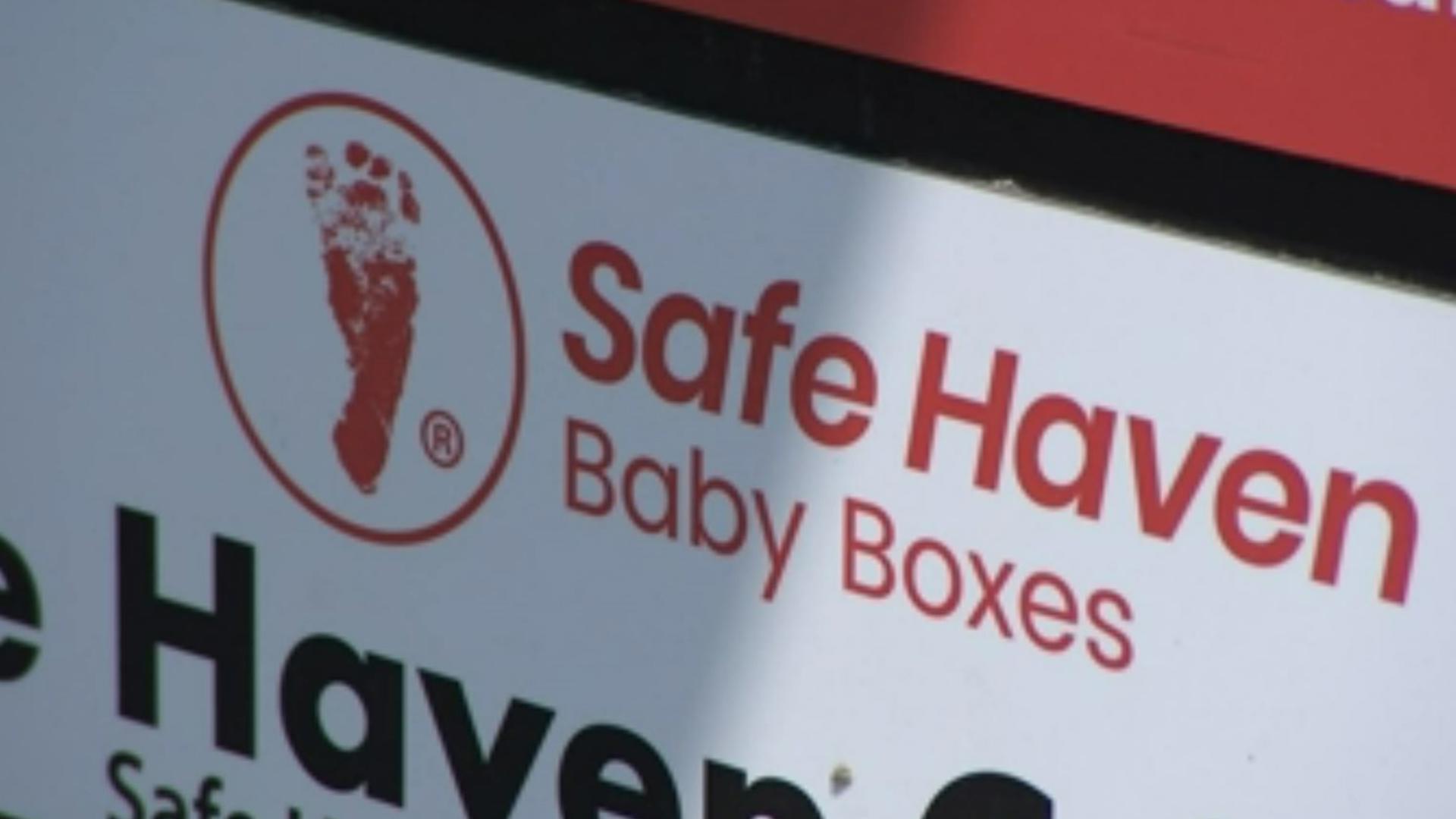BOISE, Idaho — Recently, one of Keith Albi’s clients relapsed on meth. Albi is a senior probation and parole officer in Caldwell, and he works with roughly 70 people who are under supervision. His client had an old friend visit from another part of the state, who convinced him to use the drug again.
In March, before COVID-19 was confirmed in Idaho, probation or parole officers might have arrested someone in that client’s position for using drugs again — and Albi was no exception.
“Candidly — I would’ve taken him to jail … for two days of discretionary jail time,” Albi said.
But in an effort to help the state respond to the outbreak, Gov. Brad Little suspended 125 administrative rules — and one of those had to do with the matrix probation and parole officers use as a guide when deciding how to respond to what people do on supervision.
Albi, thus, had a little more discretion. Instead of arresting the man, he and his client role-played a conversation, designed to show him how to politely let former friends know he still cared about them, but needed to avoid drugs. That conversation happened in April; Albi then reached out to the man’s substance abuse treatment provider for additional support.
It’s an example of a possible shift in supervision strategy in Idaho — the state that sends more people to prison for technical violations of supervision than any other in the country. The shift is not an Idaho-specific response to the virus outbreak, and it might herald a long-term change in supervision policies across the country.
There are 4.5 million people under supervision every year nationwide, the Vera Institute of Justice reported in March. More than 16,000 people in Idaho are under supervision, according to the Idaho Department of Correction.
“This gives us a big opportunity to challenge the need for incarceration for non-violent folks,” Brian Lovins, president-elect of the American Probation and Parole Association, was quoted as saying in a story by The Marshall Project in April. The story also quoted a small survey from New York University, indicating that, across the country, probation and parole officers are now more often likely to arrest people only if they break the law, rather than if they simply violate the terms of their supervision by, for example, drinking alcohol.
“IDOC’s probation and parole officers have been directed to use their discretion and arrest people only when they pose a threat to public safety,” department spokesman Jeff Ray wrote in an email to the Idaho Press. “There have been no formal changes to arrest policies.”
'NOT DISCRETIONARY JAIL TIME'
Idaho Department of Correction Director Josh Tewalt, in speaking with the Idaho Board of Correction in April, compared the move to the health care system’s strategy of foregoing elective surgeries, saying the criminal justice system has temporarily suspended “elective incarceration.”
In speaking to the board about probation and parole officers specifically, he said officers were “being more thoughtful and utilizing maximum discretion to say, ‘Does this person need to be in jail at this time?’”
“Their go-to move now is not discretionary jail time,” Tewalt told the Idaho Press. “They will put people in cuffs if they have to, and when public safety demands it.”
Vito Kelso, a senior probation and parole officer, told the Idaho Press, “There have been times when you've got to get a little more creative on how you correct that behavior."
Kelso said he’s used house restrictions — effectively placing people on house arrest — and both Albi and Kelso said they’ve assigned people to write reports reflecting on their behavior if they violate the terms of their supervision.
“There is a lot of power in having to write something down and think about it,” Kelso said.
Kelso said officers have also been making more use of GPS monitoring and a remote breathalyzer system — at set points throughout the day, the person under supervision will blow into the breathalyzer and the officer can see the results remotely through a data system.
Even when people aren’t complying with the terms of their supervision, officers are looking for socially distant solutions. Abli cited one case from April in which, instead of securing a warrant for someone’s arrest, he asked a judge to issue a summons for the person to appear in court. It means a police officer won’t see a warrant out for the person’s arrest during a law enforcement encounter.
“Before, I don’t think I’ve ever asked to have a summons issued,” he said. “I knew it was an option … we had discussed it a long time ago.”
Still, it can be frustrating. Probation and parole officers normally rely on home visits — they can arrive at a person’s home and come inside to see who the person is living with, where they’re living, if there are drugs in the home, or if they are surrounding themselves with people they shouldn’t be around. Social distancing means they have to rely a little more on the honor system.
Kelso said he knew of at least one situation in which a person’s drug use rose to a felony level; he felt if he could have intervened the way he would have before the new coronavirus arrived, he could have prevented that in the first place.
Even still, many people have been responsive. Abli recently checked in with the parents of one of his clients; the man lives with them. He asked how the man was doing and his parents were honest — he’d slipped up and stayed out late with his old friends, and started using marijuana. Abli worked with the man and imposed a curfew to help keep him focused.
By the time Albi spoke with the Idaho Press in April, he said the man was complying with supervision again, and had even secured a job.
“The vast majority of people are going to do what they need to do because they want to change their life,” Abli said. “You’re going to have a few bad actors who see this as a spring break, but I’m not convinced that those people wouldn’t do that anyway.”
DROP IN NUMBERS
The number of people in Idaho’s jails and prisons have plummeted since state and local governments have issued social distancing orders. At the April board of correction meeting, Tewalt told board members that, on March 2, the department had 9,560 people in facilities. As of Friday, that number had dropped to 8,262 — in a state with a prison system so overcrowded officials had eyed the prospect of sending more than 1,000 prisoners to a private facility in Colorado. As of Friday there were 736 people in the Ada County Jail, down from 1,054 on March 16, and there were 314 inmates in the Canyon County Jail as of Friday, down from 464 on Feb. 23.
Still, on Friday there were 173 people in the Ada County Jail for parole violations; 36 of those people were there because of technical violations, according to Patrick Orr, spokesman for the Ada County Sheriff's Office.
GOING FORWARD
The department on April 16 conducted its first video meetings for people on probation or parole who had gone through substance abuse programs while in a facility, according to Walter “Jim” Meldrum, the department’s substance abuse coordinator.
Meldrum leads some of those meetings, which have previously been held in person only. That first meeting had its challenges, he said — he had to make sure everyone in the group, usually about 10 people, had a working internet connection and that they were safe and could speak confidentially.
Still, he said, there are advantages to video meetings. It means people don’t have to travel to an office. Some people were also more comfortable joining the meeting from the safety of their home, he said.
“I think it takes down some of those defense mechanisms, some of that guardedness,” Meldrum said.
The concept of such video meetings isn’t new — Meldrum said he’d done some research into the idea before — but the outbreak of COVID-19 fast-tracked their use. Meldrum said that, even after the outbreak, he plans to use a mix of in-person and video meetings, depending on what works best in a given situation.
It’s an example of one of the solutions the department developed in response to COVID-19 that it plans to continue to use, even when the outbreak ends.
Tewalt spoke to that in the April meeting of the Idaho Board of Correction, asking, rhetorically, “How many things were expedited that were going to be long-term goals for this agency because they had to be expedited?”
But it could even change the way officers like Albi and Kelso work on the ground too. Albi said he’s thought about, in the future, if a person has a track record of doing well under supervision, they might not be required to come into the office for an in-person visit with him.
“We could do a telephone visit like we’ve been doing,” he said. “A: It’s a reward; B: Kind of our whole point is to reintegrate people into this normal life. That feels more normal to me than having to drive down to a probation and parole office.”
Tewalt told the Idaho Press the department, in its emergency plan, built in a way to document all the operational changes it undergoes, to track their effectiveness.
“Part of it is that we’re learning through necessity that there are some better ways to accomplish what we’ve been trying to accomplish,” Tewalt said. “There are some things we’re doing now that we have to do that maybe won’t make sense (later). But I think that’s our responsibility to have a thoughtful conversation about what’s working and what’s not.”
On a person-to-person level, Albi has also found another way to use the bleakness of the coronavirus outbreak to help clients who have battled addiction.
“If they can walk through this and maintain their sobriety and look back … they can come out on the other side with a sense of accomplishment they may not have had before,” he said.
If you enjoy reading articles like this one from our partners at the Idaho Press, please consider subscribing to them for newspaper delivery or digital access to help ensure stories like this are told.
More from our partner Idaho Press: Homelessness nonprofit hires social workers to help unsheltered Boiseans
Facts not fear: More on coronavirus
See our latest updates in our YouTube playlist:



